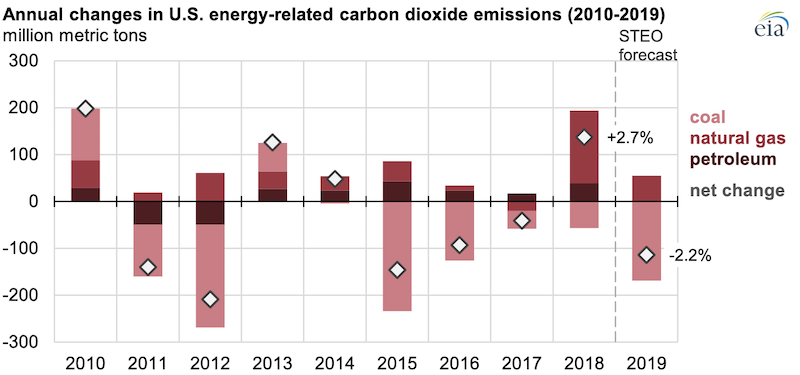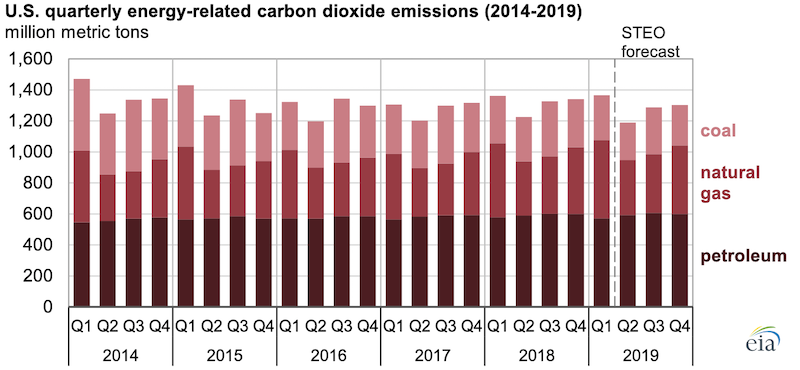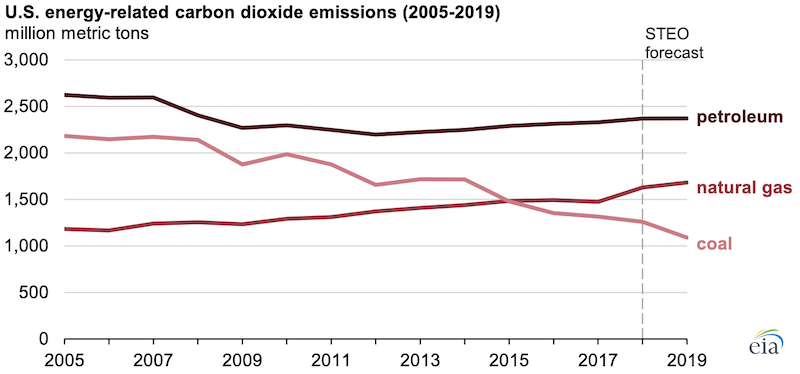After a 2.7% increase in U.S. energy-related carbon dioxide (CO2) emissions in 2018, EIA’s July Short-Term Energy Outlook (STEO) forecasts a 2.2% decrease in CO2 emissions for 2019. Nearly all of the forecast decrease is due to fewer emissions from coal consumption. Forecast natural gas CO2 emissions increase and petroleum CO2 emissions remain virtually unchanged.

Based on data in EIA’s Monthly Energy Review, energy-related CO2 emissions in the first three months of 2019 were largely similar to those in the first three months of 2018. In the first quarter of 2019, EIA estimates that U.S. energy-related emissions totaled 1,367 million metric tons (MMmt), which is nearly equal to those in the first quarter of 2018.

For the remainder of the year, EIA expects that relatively mild forecast temperatures will keep energy demand and resulting energy-related CO2 emissions below last year’s levels. EIA’s expectations for weather are largely based on forecasts produced by the National Oceanic and Atmospheric Administration’s Climate Prediction Center.
EIA forecasts that CO2 emissions from coal will decrease by 169 MMmt in 2019, the largest decrease in CO2 emissions from coal since 2015. Conversely, EIA projects CO2 emissions from natural gas to increase by 53 MMmt. Both changes are largely due to forecast changes in the electricity generation mix as natural gas continues to grow as the most prevalent electricity generation fuel.

Because the electric power sector consumes nearly 92% of the coal used in the United States, expectations for both overall lower electricity demand and a lower share of coal-fired electricity this summer lead EIA to forecast lower coal CO2 emissions.
Although the electric power sector is using more natural gas, EIA does not expect the increase in natural gas emissions in 2019 to offset the decrease in coal emissions because natural gas-fired electricity generation is less carbon-intensive than coal-fired electricity generation.
EIA expects that CO2 emissions from petroleum consumption, which has risen in each of the past six years, will be virtually flat in 2019. Petroleum made up nearly half (45%) of energy-related CO2 emissions in 2018.
Principal contributors: Olivia Clark, Perry Lindstrom










